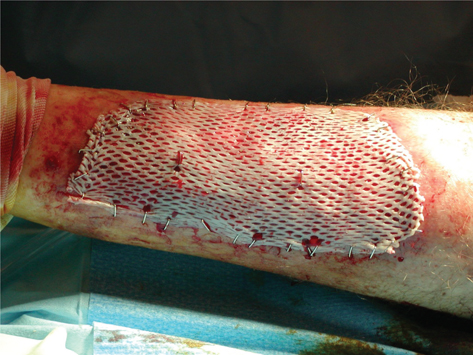Skin Grafting in France
Find the best clinics for Skin Grafting in France
No pricing info available
Israel offers the best prices Worldwide
Price: $ 6,002
Clinique Saint Charles, located in Chemin du Penthod, Lyon, France offers patients Skin Grafting procedures among its total of 114 available procedures, across 5 different specialties. Currently, there's no pricing information for Skin Grafting procedures at Clinique Saint Charles, as all prices are available on request only. There is currently a lack of information available on the specialists practicing at the Clinic, and they are accredited by ISO 9001:2008
WHY US?
At Medijump, we're making medical easy. You can search, compare, discuss, and book your medical all in one place. We open the door to the best medical providers worldwide, saving you time and energy along the way, and it's all for FREE, no hidden fees, and no price markups guaranteed. So what are you waiting for?

Free

Best Price

Widest Selection

Risk-Free
What you need to know about Skin Grafting in France

Skin grafting is a type of surgery that involves removing skin from an area of the body and transplanting it to a different area. The transplanted skin tissue is called a skin graft. This surgery may be done to treat burns, extensive wounding or trauma, and areas of extensive skin loss caused by infection, such as purpura fulminans and necrotizing fasciitis. Skin grafting may also be used in certain surgeries that may need skin grafts for healing to occur, such as the removal of skin cancer.
There are two basic types of skin grafts:
- Split-thickness grafts involve removing the top layer of the skin (the epidermis) and a portion of the deeper layer of the skin (dermis). The skin is taken from a healthy part of the body (donor site). The grafts are used to cover large areas.
- Full-thickness grafts involve removing all of the epidermis and dermis from the donor site. This type of graft is usually used for small wounds that are located on highly visible parts of the body, such as the face.
What does a Skin Grafting Procedure Involve?
Skin grafting is performed under a general anaesthetic, which means you will be asleep and will not feel any pain during the procedure. In some cases, local anaesthetic may be used instead.
Your surgeon begins the surgery by removing skin from the donor site. For split-thickness grafts, the skin will be removed from an area of the body that is usually hidden by clothing, such as the outside of your thigh or the hip. For full-thickness graft, the skin is taken from the abdomen, forearm, groin, or an area above the collarbone.
After your surgeon removes the skin from the donor site, it will be placed carefully over the transplant area and secured with surgical dressing, stitches, or staples. If the transplant area is especially large, the skin from the donor site may be meshed in order to stretch it into a larger patch.
How Long Should I Stay in France for a Skin Grafting Procedure?
For a split-thickness graft, you may need to stay in the hospital for a few days to ensure that the graft and the donor site are healing correctly. A full-thickness graft may require one to a two-week hospital stay. After you are discharged from the hospital, plan to stay in France for at least 10 to 14 for more days for scheduled follow-up checkups where your doctor changes your dressing.
What's the Recovery Time for Skin Grafting Procedures in France?
The donor site generally takes anywhere from several days to a week to heal. You need to avoid doing any activities that could injure or stretch the graft site, including exercise, for at least three to four weeks. Your surgeon will give you a detailed recovery timeline and tell you when it is safe to resume your normal activities.
What sort of Aftercare is Required for Skin Grafting Procedures in France?
Your surgeon will give you an instruction, which may include how to care for the dressing and area around it, medicines to take, and restrictions. If possible, try to elevate the wound while sitting or lying down to reduce swelling. You should also avoid hitting or bumping the area. In some cases, your surgeon may recommend physical therapy.
What's the Success Rate of Skin Grafting Procedures in France?
Skin grafting is highly successful, and the reason for your surgery determines the result. However, some skin grafts do not heal well, and you may need a second graft. Skin grafting also carries some risks, including allergic reaction to the anaesthesia, problems with breathing, bleeding, infection, blood clots, infection, loss of grafted skin, chronic pain, reduced or lost skin sensation, scarring, skin discolouration, increased sensitivity, and uneven skin surface.
Are there Alternatives to Skin Grafting Procedures in France?
If you cannot or do not want to undergo skin grafting, the alternatives you can consider are:
- Letting the skin heal on its own – burns or wounds may heal without a skin graft. However, if you have a deep burn or wound that needs a full-thickness graft, scar tissue may form and prevent normal movement around the area.
- Bioengineered skin – skin grown in a lab, as well as skin from animals or cadavers, can be used instead of your own skin. Depending on the brand, bioengineered skin may be created using different materials. Some may be made of tendons from cows and shark cartilage, while others are made of human cells and a silicone mesh-like material.
- Negative pressure wound therapy – this type of treatment can help heal acute and chronic wounds, as well as severe first- and second-degree burns by applying a special dressing to the affected area and using negative atmospheric pressure.
What Should You Expect Before and After the Procedure
Before skin grafting, you may have an open wound, burns, or skin loss caused by infection. After skin grafting, all of these problems are treated and your skin would look normal again.
Whilst the information presented here has been accurately sourced and verified by a medical professional for its accuracy, it is still advised to consult with your doctor before pursuing a medical treatment at one of the listed medical providers
No Time?
Tell us what you're looking for and we'll reachout to the top clinics all at once
Enquire Now

Popular Procedures in France
Prices Start From $106

Prices Start From $53

Prices Start From $14

Prices Start From $477

Recommended Medical Centers in France for Skin Grafting

- Interpreter services
- Translation service
- Religious facilities
- Medical records transfer
- Medical travel insurance
- Health insurance coordination
- TV in the room
- Safe in the room
- Phone in the room
- Private rooms for patients available

- Interpreter services
- Translation service
- Religious facilities
- Medical records transfer
- Medical travel insurance
- Health insurance coordination
- TV in the room
- Safe in the room
- Phone in the room
- Private rooms for patients available

- Interpreter services
- Translation service
- Religious facilities
- Medical records transfer
- Medical travel insurance
- Health insurance coordination
- TV in the room
- Safe in the room
- Phone in the room
- Private rooms for patients available

- Interpreter services
- Translation service
- Religious facilities
- Medical records transfer
- Medical travel insurance
- Health insurance coordination
- TV in the room
- Safe in the room
- Phone in the room
- Private rooms for patients available

- Interpreter services
- Translation service
- Religious facilities
- Medical records transfer
- Medical travel insurance
- Health insurance coordination
- TV in the room
- Safe in the room
- Phone in the room
- Private rooms for patients available

- Interpreter services
- Translation service
- Religious facilities
- Medical records transfer
- Medical travel insurance
- Health insurance coordination
- TV in the room
- Safe in the room
- Phone in the room
- Private rooms for patients available

- Interpreter services
- Translation service
- Religious facilities
- Medical records transfer
- Medical travel insurance
- Health insurance coordination
- TV in the room
- Safe in the room
- Phone in the room
- Private rooms for patients available

- Interpreter services
- Translation service
- Religious facilities
- Medical records transfer
- Medical travel insurance
- Health insurance coordination
- TV in the room
- Safe in the room
- Phone in the room
- Private rooms for patients available

- Interpreter services
- Translation service
- Religious facilities
- Medical records transfer
- Medical travel insurance
- Health insurance coordination
- TV in the room
- Safe in the room
- Phone in the room
- Private rooms for patients available

- Interpreter services
- Translation service
- Religious facilities
- Medical records transfer
- Medical travel insurance
- Health insurance coordination
- TV in the room
- Safe in the room
- Phone in the room
- Private rooms for patients available

